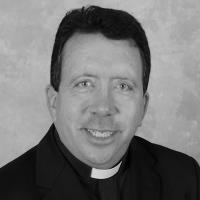I have spent the better part of the last 35 years trying to become a better preacher. I would try to impress my homiletics professors and fellow seminary students with my theological brilliance — I failed miserably. After seminary I was on a quest to preach sermons that were truly understandable. I then strove to go from reading a sermon to speaking to the congregation without notes, outside the pulpit.
As I made these changes to my preaching, I was eager to learn what the congregation thought about them. A brisk handshake and “Good sermon, Pastor” often meant that I had bored them. “You were talking to me this morning” meant that I had hit home. Occasionally someone would pull me aside and say: “Did my wife talk to you about what I am going through?” When this happened it meant that I had hit a grand slam and my ego was bolstered. (I say this to make confession as I am not proud of my need for affirmation.)
My preaching was interrupted for 16 months by the intrusion of an extremely rare, inoperable, malignant brain tumor and a stroke resulting from a mistake during a biopsy. During much of that time I could not speak but I hungrily listened to countless sermons. Some of these were on television. Some were delivered online and some were in-person at a congregation. As I look back, consciously or unconsciously, I was hungry for meaty, substantive preaching whether I was in an intensive-care hospital bed, a transitional care unit, or inside the church. Years ago a mentor wrapped up a text study with the words: “Remember, this may be the last sermon that people will ever hear.” Well, dear preacher, this is what I want you to know and what my unintended sabbatical has taught me about preaching.
When you preach to me, I want you to know that your sermon could very well be the last sermon that I will ever hear — so make it good. Make it memorable. Make it one that I will give me hope and courage as I struggle with difficult medical news and when my soul yearns for a shred of good news. Preaching, my friend, is truly the most important work that you do.
Forgive me for adding additional pressure given the demands on your time. Nevertheless there are others like me in your congregation who are walking though, wheeling through, or being rolled through the valley of the shadow of death. There are people who silently bear the burden of stage four cancer. There are families who struggle with depression and marriages that are lifeless and couples struggling with pending divorce. If I had to do my preaching career over, I would be less worried about being erudite and getting the text fully explored. I would worry more about whether the text is focusing on the hurt in people’s lives.
When I arise in the morning and go through the exhausting process of getting ready for church, I want the pastor to know that I am hungry for the Gospel. I want a sermon that is theologically sound. However, hearing a theologically correct sermon is not why I go to church. I attend church because I am literally dying and I need hope. I need the Gospel! Help me to better know and love the One who is “the way, the truth and the life.” I want to know that God accepts the unacceptable in me. While I can’t accept my own unworthiness I want to know that somehow God can.
Please don’t read your sermon. Talk to me as a friend. Feed me. If you have a cute story please only share it if it helps make profound truths even more profound. When you speak please use the word “you” often, for then I know your words are being spoken to me. Also, remember that when you judiciously share your vulnerabilities and struggles, your congregation will hang onto every word. For they know that you are speaking out of the deepest experiences in your life.
It is amazing what has happened when I have shared my struggles — even struggles with my faith. Those listening begin to share their vulnerabilities as well as the detours, potholes, and wrong turns they have taken in life. As I reflect on my career, I now realize that I was often so busy being “super pastor” in keeping the church train moving on time, my parishioners did not feel free to share their struggles as they do now.
And one more thing: make your sermon relevant. As I watch people being shot in Orlando, Charleston, Minneapolis, Belgium, France, and other places, can you help me better articulate what my faith has to say to these situations? Can you also teach me how to do my part in creating a world where the lion will lie down with the lamb as well as helping me do my part to make peace on earth a reality?
Finally, I ask you to not accept the trends that tell us that worship attendance and church membership are going down. Instead let us focus on giving those we serve a reason to come to church and a reason to come back. What is the best way to do it? Preach sermons that touch the deepest hurts in the lives of your flock.
Thank you dear preacher, for reading these words. Thank you for your important work. Some of us are dying, and we desperately need what you have to say.
Author bio: John Hogenson was Senior Pastor of Mount Olivet Lutheran Church in Minneapolis and Victoria, Minnesota. In June 2016, Gustavus Adolphus College in St. Peter, Minn., recognized him in a special ceremony for his faith and courageous spirit. John’s writings on CaringBridge have been seen by thousands and are a source of comfort and hope to many.
John Hogenson died on Jan. 4, 2017, following a 20-month battle with an inoperable brain tumor.

